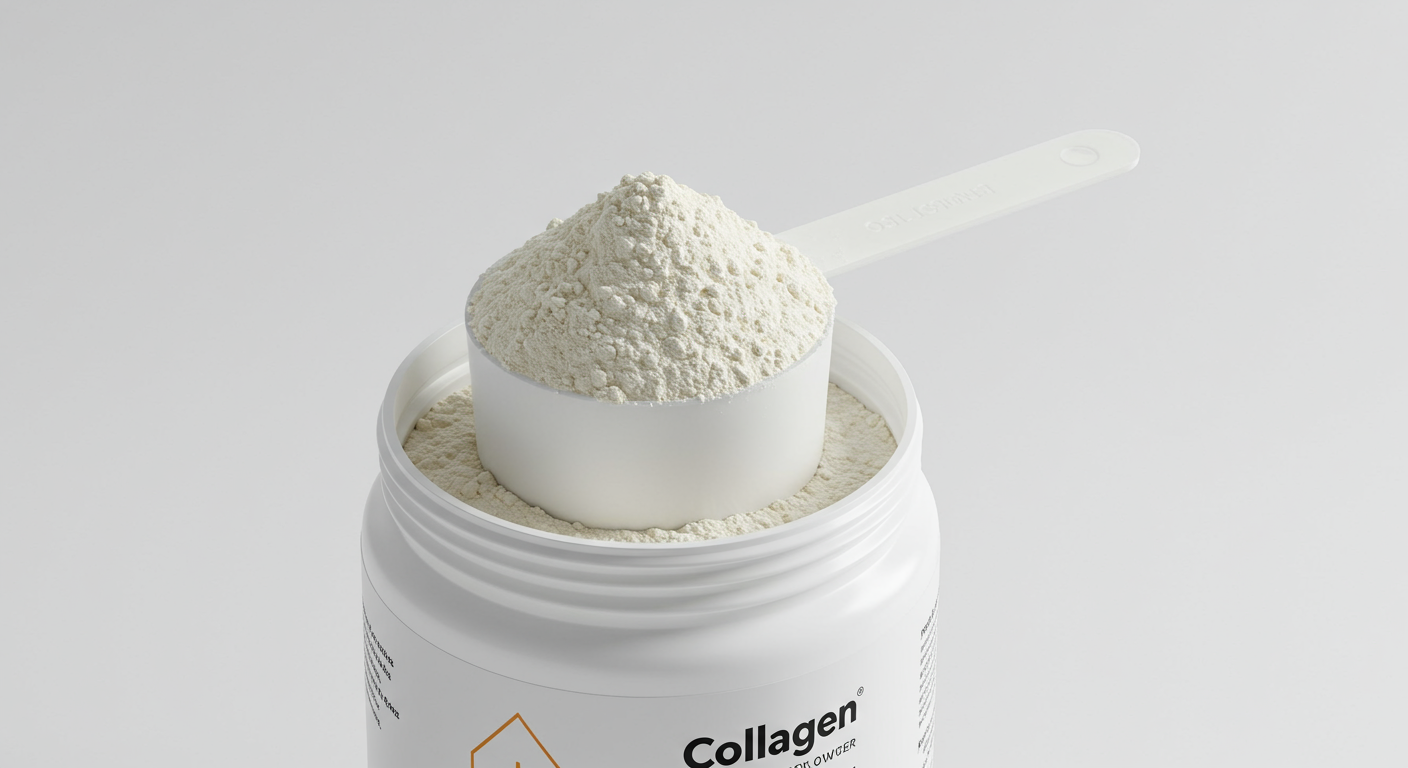Now Reading: Collagen: The Ultimate Guide to Benefits, Types, and Boosting Production
- 01
Collagen: The Ultimate Guide to Benefits, Types, and Boosting Production
Collagen: The Ultimate Guide to Benefits, Types, and Boosting Production

What is Collagen?
Collagen is the most abundant protein in the human body, acting as the scaffolding that holds us together. It’s a vital component of skin, bones, muscles, tendons, and ligaments. Think of it as the ‘glue’ that provides structure and support. As we age, collagen production naturally declines, leading to wrinkles, joint pain, and decreased bone density.
Collagen is made up of amino acids, primarily glycine, proline, and hydroxyproline. These amino acids form a triple-helix structure that gives collagen its strength and resilience. While our bodies produce collagen naturally, factors like sun exposure, smoking, and a poor diet can accelerate its breakdown.
Supplementing with collagen or incorporating collagen-boosting foods into your diet can help replenish declining levels and support overall health.
The Many Benefits of Collagen
The benefits of collagen are far-reaching and impact various aspects of health:
- Skin Health: Collagen is crucial for maintaining skin elasticity and hydration. It helps reduce the appearance of wrinkles and fine lines, giving skin a youthful glow. Studies have shown that collagen supplements can improve skin hydration and reduce the visible signs of aging.
- Joint Health: Collagen supports cartilage, the rubbery tissue that cushions joints. Supplementing with collagen can help reduce joint pain and stiffness, particularly in individuals with osteoarthritis.
- Bone Health: Collagen is a key component of bone structure. It contributes to bone strength and density. Collagen supplements may help prevent bone loss and reduce the risk of osteoporosis.
- Muscle Mass: Collagen plays a role in muscle growth and repair. It can help increase muscle mass and strength, especially when combined with resistance training.
- Gut Health: Some studies suggest that collagen can help support gut health by strengthening the lining of the digestive tract. This can be beneficial for individuals with leaky gut syndrome or other digestive issues.
- Heart Health: Preliminary research indicates that collagen may contribute to heart health by helping to maintain the structure and elasticity of arteries.
These are just some of the many benefits associated with collagen. Further research is ongoing to explore its full potential.
Different Types of Collagen
There are at least 28 different types of collagen, but the following are the most common:
- Type I: The most abundant type of collagen in the body. Found in skin, bones, tendons, ligaments, and other connective tissues. It provides strength and structure to these tissues.
- Type II: Primarily found in cartilage. It helps maintain the integrity of cartilage and supports joint health.
- Type III: Found in skin, muscles, and blood vessels. It provides elasticity and support to these tissues.
- Type IV: Found in the basement membranes of cells. It supports the structure and function of these membranes.
- Type V: Found in hair, placenta, and other tissues.
Collagen supplements often contain a blend of different collagen types, but some are specifically formulated to target certain health concerns. For example, Type II collagen is often recommended for joint health, while Type I and III collagen are often recommended for skin health.
No products found.
How to Boost Collagen Production Naturally
While supplements can be helpful, you can also boost collagen production naturally through your diet and lifestyle:
- Consume Collagen-Rich Foods: Bone broth, chicken skin, fish, and eggs are all good sources of collagen.
- Eat Protein-Rich Foods: Collagen is made from amino acids, so ensuring you get enough protein is essential. Good sources of protein include meat, poultry, fish, beans, and lentils.
- Get Enough Vitamin C: Vitamin C is essential for collagen synthesis. Citrus fruits, berries, and leafy greens are excellent sources of vitamin C.
- Consume Foods Rich in Copper: Copper is another nutrient that plays a role in collagen production. Good sources of copper include liver, shellfish, nuts, and seeds.
- Avoid Smoking and Excessive Sun Exposure: Smoking and excessive sun exposure can damage collagen and accelerate its breakdown.
- Minimize Sugar Intake: High sugar intake can interfere with collagen production and contribute to inflammation.
By following these tips, you can support your body’s natural ability to produce collagen and maintain healthy skin, joints, and bones.
Choosing the Right Collagen Supplement
With so many collagen supplements on the market, choosing the right one can be overwhelming. Here are a few factors to consider:
- Type of Collagen: Consider your specific health goals. If you’re looking to improve skin health, look for a supplement containing Type I and III collagen. If you’re concerned about joint health, look for a supplement containing Type II collagen.
- Source of Collagen: Collagen supplements can be derived from various sources, including bovine (cow), marine (fish), and porcine (pig). Choose a source that aligns with your dietary preferences and restrictions.
- Hydrolyzed Collagen: Hydrolyzed collagen, also known as collagen peptides, is broken down into smaller pieces, making it easier for the body to absorb.
- Third-Party Testing: Look for supplements that have been third-party tested for purity and potency. This ensures that you’re getting a high-quality product that is free from contaminants.
- Read Reviews: Read reviews from other users to get an idea of the effectiveness and side effects of different collagen supplements.
Consult with a healthcare professional before starting any new supplement regimen, especially if you have any underlying health conditions.
No products found.












